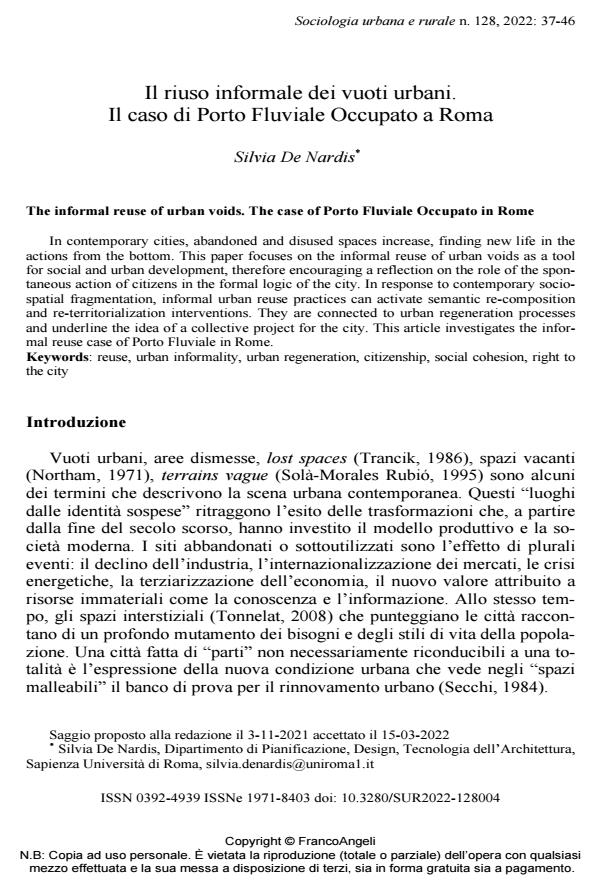The informal reuse of urban voids. The case of Porto Fluviale Occupato in Rome
Journal title SOCIOLOGIA URBANA E RURALE
Author/s Silvia De Nardis
Publishing Year 2022 Issue 2022/128
Language Italian Pages 10 P. 37-46 File size 154 KB
DOI 10.3280/SUR2022-128004
DOI is like a bar code for intellectual property: to have more infomation
click here
Below, you can see the article first page
If you want to buy this article in PDF format, you can do it, following the instructions to buy download credits

FrancoAngeli is member of Publishers International Linking Association, Inc (PILA), a not-for-profit association which run the CrossRef service enabling links to and from online scholarly content.
In contemporary cities, abandoned and disused spaces increase, finding new life in the ac-tions from the bottom. This paper focuses on the informal reuse of urban voids as a tool for social and urban development, therefore encouraging a reflection on the role of the spontane-ous action of citizens in the formal logic of the city. In response to contemporary socio-spatial fragmentation, informal urban reuse practices can activate semantic re-composition and re-territorialization interventions. They are connected to urban regeneration processes and under-line the idea of a collective project for the city. This article investigates the informal reuse case of Porto Fluviale in Rome.
Keywords: reuse, urban informality, urban regeneration, citizenship, social cohesion, right to the city
Silvia De Nardis, Il riuso informale dei vuoti urbani. Il caso di Porto Fluviale Occupato a Roma in "SOCIOLOGIA URBANA E RURALE" 128/2022, pp 37-46, DOI: 10.3280/SUR2022-128004